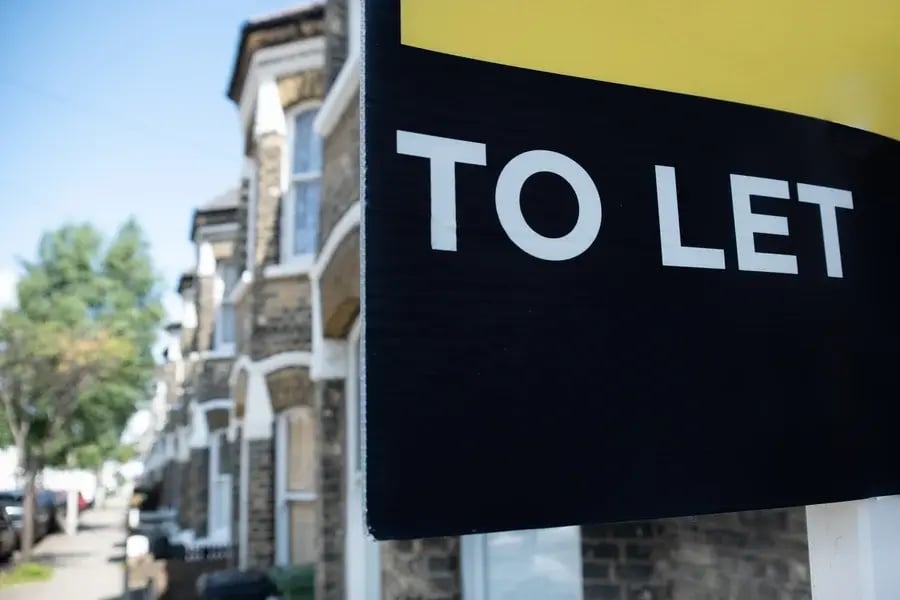Consent to let
In some instances, landlords may need to obtain consent before letting their property.

This usually happens when the property is not held in a Buy-to-Let mortgage and permission is required from their mortgage lender. In some other instances it could be required – such as when the landlord is not the main leaseholder of a property.
Legionella Risk Assessment
Landlords are required by law to minimise the risk of legionella (a lung infection which can be caught from inhaling droplets of water containing bacteria).
While the disease is fairly uncommon it can be very serious, which is why it is imperative that landlords identify potential sources of legionella bacteria and treat them accordingly.
More information on landlords’ responsibilities when it comes to Legionella can be found here - https://www.hse.gov.uk/legionnaires/legionella-landlords-responsibilities.htm
Tenant Fees
Under the Tenant Fees Act (2019) landlords and letting agents are prevented from charging tenants unnecessary fees. The only permitted charges are:
- Rent
- A refundable tenancy deposit
- A refundable holding deposit
- Payments associated with early termination of the tenancy
- Payments capped at £50 for the variation, assignment, or novation of a tenancy
- Payments in respect of utilities, communication services, TV licence, and Council Tax
- A default fee for late payment of rent and replacement of a lost key/security device
More information on the Tenant Fees Act can be found here - https://www.gov.uk/government/collections/tenant-fees-act
How to Rent Guide
Before a tenant moves into a property, a landlord must supply them with the Government ‘How to Rent’ Guide. Failure to do so will impede the landlord’s ability to repossess their property.
View and download the guide here - https://www.gov.uk/government/publications/how-to-rent
Property Redress Scheme
It is a legal requirement for all letting/property management agencies to join an authorised redress scheme. A redress scheme will work to resolve any disputes between letting agents and their clients.
Failure to do so could result in a fine of up to £5,000.
Landlords should ensure they are using a reputable agency that is part of an authorised redress scheme.
Taxes
Income generated as a landlord must be reported to HMRC, failure to do so is a criminal offence and can result in large fines and in some instances imprisonment.
This applies equally to landlords who let out property in their individual names or through a limited company.
More information on paying tax as the landlord is available here - https://www.gov.uk/renting-out-a-property/paying-tax
Increasing Rent
A tenancy agreement should clearly state how and when rent will be reviewed. The type of tenancy will affect when a landlord can increase rent.
Once the Renters’ Right Act comes into force, all tenancies will be switched to periodic tenancies. This will mean that landlords can only increase rent once every 12 months in line with market rates. Landlords will need to provide at least two month’s written notice before the increase takes effect.
Should the tenant feel like the rent increase is not fair, they can challenge it by applying to the First-tier Tribunal, which can set a lower rent if it agrees the increase is excessive. The tribunal cannot increase rent above the landlord’s proposed amount, and the tenant cannot be evicted for making a challenge. This process is open to all tenants and rent will not increase during the period of the dispute which can take months to be heard. Therefore, it is vital to keep to market-related rates and manage tenant expectations effectively throughout the tenancy.
More information on rent increases can be found here - https://www.gov.uk/private-renting/rent-increases
Evicting Tenants
In most cases to evict a tenant, a landlord will need to apply for an eviction order from the court, which can then be enforced by bailiffs.
There are strict processes which a landlord must adhere to when attempting to evict a tenant. Section 21 notices (no fault evictions) will be abolished once the Renters’ Rights Act comes into full force. This will mean that a Section 8 notice will need to be issued, on clear grounds, before applying to the court.
Full details on the process for landlords can be found here - https://www.gov.uk/evicting-tenants



